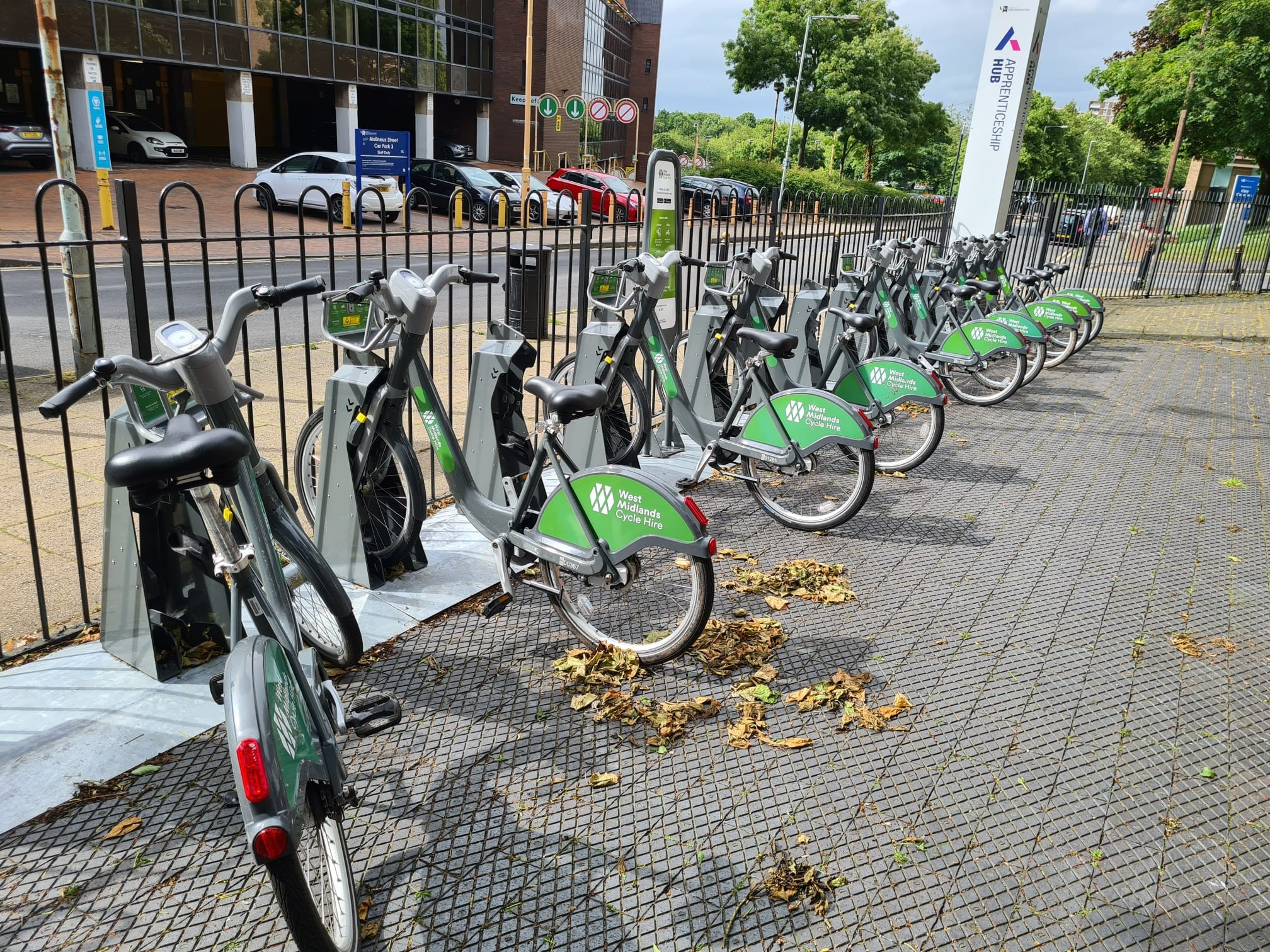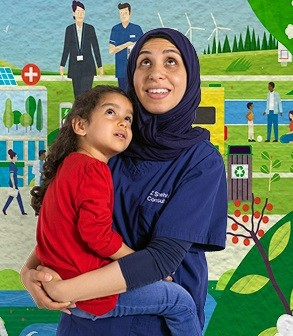Healthier planet. Healthier people.
Climate change poses a major threat to staff, patients, and their communities. This is because there is a direct link between the health of our planet and the health of our people. As a system, we are acting to reduce the harmful gases it puts into the atmosphere. Fewer emissions will mean fewer patients with asthma, heart disease, and cancer. It will also reduce any disruption to the delivery of the care we provide.
We’ll be sharing greener initiatives for the people of the Black Country.
Orthoptics Goes Digital: A Sustainability and Patient Care Success Story at The Royal Wolverhampton NHS Trust
The Orthoptic Department at The Royal Wolverhampton NHS Trust is pioneering a series of initiatives that have significantly enhanced patient experience, reduced carbon emission and improved operational efficiency.
A key development has been the introduction of telephone consultations for children with special and complex needs, launched in May 2023. This initiative has not only improved accessibility for families but also contributed meaningfully to the NHS’s net zero ambitions.
A retrospective evaluation of 206 patient records revealed:
- 102 face-to-face appointments avoided
- 81 hours of patient time saved
- 47 car parking spaces freed
- 0.2 tonnes of CO₂ emissions reduced—equivalent to the carbon absorption of 0.1 hectares of forest
The consultations, scheduled during late afternoons, resulted in fewer missed appointments and shorter referral-to-appointment times—averaging 107 days compared to 168 days for face-to-face appointments. Additionally, the reduced duration of telephone consultations enabled more patients to be seen per clinic.
Beyond clinical care, the department has digitised its daily environment checks and developed a SharePoint platform to centralise resources and facilitate real-time collaboration. These changes have significantly reduced paper usage and improved staff efficiency across both sites.
Staff engagement has been integral to the department’s success. Initiatives such as the Green Advent Calendar, which encouraged daily eco-friendly actions, fostered a culture of sustainability and teamwork.
 The department’s achievements were recognised nationally at Greener AHP Week, where staff were awarded Greener AHP pin badges and certificates by Chief AHP Dr Ros Leslie and Trust Secretary Keith Wilshire—an honour bestowed upon only three individuals nationwide. The team has also joined NHS England’s AHP Green Revolution, contributing to the development of a national Green Challenge to support carbon reduction across the NHS.
The department’s achievements were recognised nationally at Greener AHP Week, where staff were awarded Greener AHP pin badges and certificates by Chief AHP Dr Ros Leslie and Trust Secretary Keith Wilshire—an honour bestowed upon only three individuals nationwide. The team has also joined NHS England’s AHP Green Revolution, contributing to the development of a national Green Challenge to support carbon reduction across the NHS.
The Orthoptic Department’s journey exemplifies how targeted innovation can deliver measurable benefits in patient care, environmental impact, and service delivery—offering a replicable model for other NHS departments.
Health and climate adaptation report
Our 2025 Health and climate adaptation report highlights stakeholder and expert insights, it outlines progress in building resilience, identifies further opportunities for adaptation, and provides recommendations for the health sector.
It aims to help local, regional, and national teams prepare for and respond to climate change while delivering on statutory net zero commitments.
Improving patient outcomes and reducing carbon emissions for asthma patients
NHS England has also developed a short animation for clinicians treating patients with asthma and COPD, explaining how they can improve patient outcomes and reduce carbon emissions through:
- Ensuring early and accurate diagnosis
- Optimising disease control following local or national guidelines
- Carefully selecting an appropriate inhaler using a shared decision-making process with patients
- Asking patients to return all unused or unwanted inhalers to pharmacies for appropriate disposal






